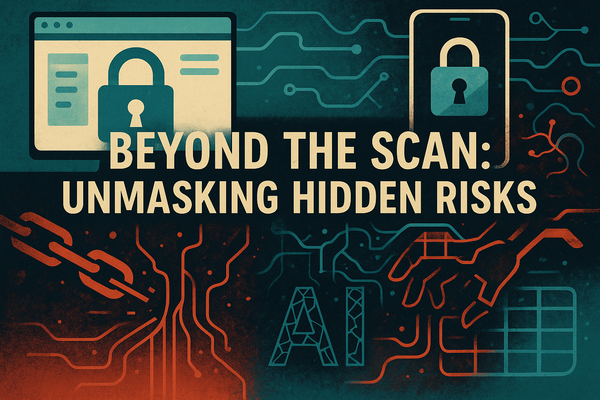Networking Tips for Security Professionals

Networking is an essential part of career development for security professionals. Building a strong network can help you stay updated with the latest trends, find job opportunities, and collaborate with other experts in the field. Here are some comprehensive networking tips to help you enhance your professional connections in the security industry.
1. Attend Industry Events and Conferences
Major Conferences:
- RSA Conference: One of the largest cybersecurity conferences, offering numerous networking opportunities.
- Black Hat: Known for its technical sessions and networking events.
- DEF CON: A hacker conference where you can meet a diverse group of security professionals.
Local Meetups and Workshops:
- Look for local cybersecurity meetups or workshops in your area. These smaller events can provide more intimate networking opportunities and allow you to connect with professionals in your local community.

2. Join Professional Organizations
Membership-Based Groups:
- (ISC)²: Offers certifications and hosts networking events.
- ISACA: Provides resources and events for IT governance, risk management, and cybersecurity professionals.
- InfraGard: A partnership between the FBI and the private sector that offers networking opportunities for security professionals.
Benefits:
- Access to exclusive events, webinars, and training sessions.
- Opportunities to volunteer and participate in committees, which can help you build deeper connections.
3. Leverage Online Communities and Social Media
LinkedIn:
- Join LinkedIn groups related to cybersecurity.
- Follow influential cybersecurity professionals and engage with their content.
- Share your own insights and articles to establish yourself as a thought leader.
Twitter:
- Follow hashtags like #cybersecurity, #infosec, and #hacking.
- Engage with tweets from industry leaders and participate in Twitter chats.
Reddit:
- Participate in subreddits such as r/cybersecurity, r/netsec, and r/hacking.
- Share your knowledge and ask questions to build rapport with other members.
4. Create and Share Content
Blogging:
- Start a blog where you share your insights and experiences in the security field. This can help establish your expertise and attract like-minded professionals.
Guest Posts:
- Contribute guest posts to established cybersecurity blogs and websites. This can increase your visibility and credibility in the industry.
Social Media:
- Share articles, whitepapers, and other valuable content on your social media profiles. Engage with your audience by asking questions and starting discussions.
5. Follow Up and Stay in Touch
After Events:
- After attending an event or conference, follow up with the people you met. Send a LinkedIn connection request with a personalized message reminding them of your conversation.
- Follow up on any offers to help or collaborate. This shows that you value the connection and are serious about maintaining the relationship.
Regular Check-Ins:
- Stay in touch with your network by regularly checking in. This can be as simple as commenting on their LinkedIn posts, sending a congratulatory message for their achievements, or sharing an interesting article.
6. Seek Mentorship and Offer Help
Find a Mentor:
- Look for experienced professionals who can provide guidance and advice. Mentors can help you navigate your career path and introduce you to their network.
Offer Your Assistance:
- Be willing to help others in your network. Whether it’s offering advice, sharing resources, or making introductions, being helpful can strengthen your relationships and build goodwill.
7. Participate in Online Courses and Certifications
Certifications:
- Pursuing certifications like CISSP, CEH, or CompTIA Security+ not only boosts your skills but also connects you with a community of learners and professionals.
Online Courses:
- Many online courses have forums or discussion groups where you can interact with instructors and peers. Use these platforms to ask questions, share knowledge, and build connections.
8. Utilize Business Cards and Elevator Pitches
Business Cards:
- Always carry business cards with your name, phone number, email address, and certifications. They are a simple yet effective way to share your contact information.
Elevator Pitch:
- Prepare a 30-second elevator pitch that summarizes who you are and what you aim to achieve in your career. This can help you make a strong first impression when meeting new people.
Conclusion
Networking is a critical component of career development for security professionals. By attending industry events, joining professional organizations, leveraging online communities, creating content, following up, seeking mentorship, participating in courses, and using business cards and elevator pitches, you can build a robust professional network. This network can provide you with valuable insights, opportunities, and support throughout your career in the security industry.
Citations:
[1] https://cybersecurityguide.org/resources/career-networking-guide/
[2] https://www.linkedin.com/advice/3/how-can-you-network-cybersecurity-professionals-outside-3hwuf
[3] https://www.forbes.com/sites/forbeshumanresourcescouncil/2019/09/18/how-to-really-network-effectively-five-simple-tips-for-cybersecurity-professionals/
[4] https://www.netwrix.com/network_security_best_practices.html
[5] https://www.aus.com/blog/ten-networking-tips-executive-protection-professionals
[6] https://www.eccu.edu/blog/cybersecurity/cybersecurity-career-networking-guide/
[7] https://www.infosecinstitute.com/resources/network-security-101/9-best-practices-for-network-security/





